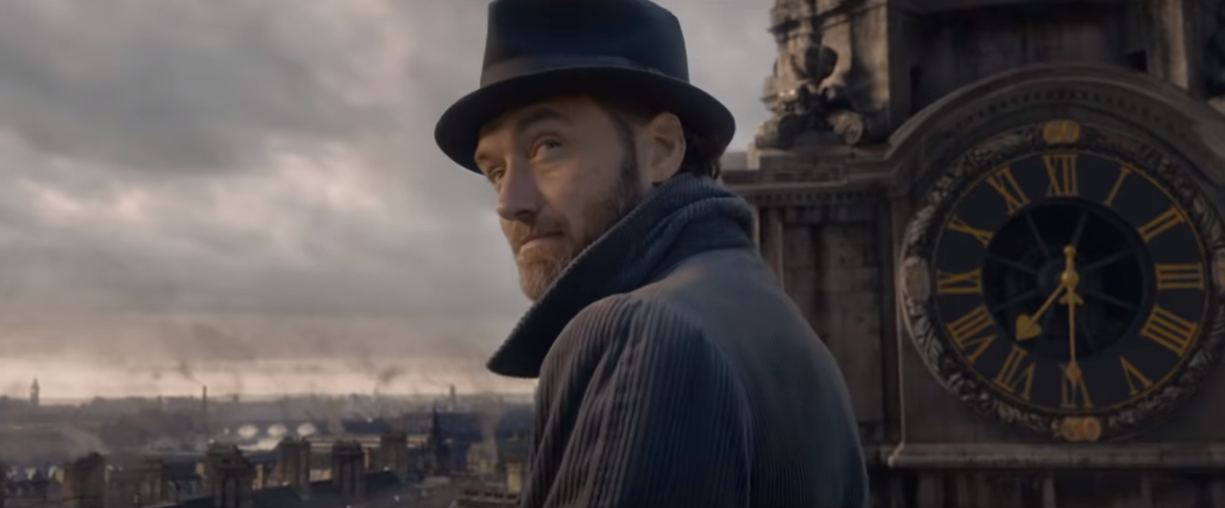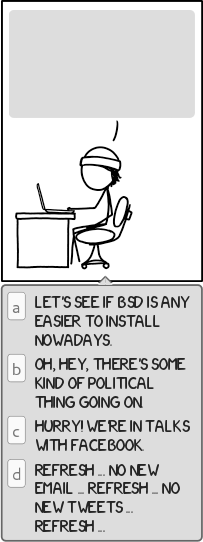I recently joined a new instance of Mastodon, the decentralised equivalent of Twitter that lots of people have been jumping on board with. I wasn’t all that wowed by it up til that point, as I hadn’t managed to find a community to be part of, but I’m enjoying it much more now.
The other day, I noticed some discussion cropping up in my timeline about something called “hopepunk”, which is supposed to be a new subgenre of fiction. Here’s an article by its originator explaining what hopepunk is about. It’s supposed to be the antithesis of grimdark, which I honestly thought was just a smushword that people used to describe things that are overly angsty, but is apparently a recognised subgenre.
I don’t really feel strongly enough about hopepunk to really weigh in on the discussion (it seems to me, at least based on the article by Alexandra Rowland that I linked above, to be an incredibly vague and subjective concept), but I have all kinds of thoughts about -punk subgenres as a general concept. I have spent many years exploring and ruminating on -punk subgenres, and these thoughts inform my approach to new concepts like hopepunk.
I decided to contribute to the conversation by posting a thread about my experiences with -punk subgenres, which is always a topic I like to get into. Surprise, surprise, it turned out pretty long, but I think I managed not to annoy anyone and also to interest a few people 🙂
I wanted to use Mastodon as a place to post those thoughts partly because I’m enjoying having a new space under my online handle where I can post whatever I like, partly because that’s where the conversation was taking place, and partly because I felt like the format lent itself well to this kind of stream-of-consciousness recollection. But I’ve also decided to collect the thread here in order to have it all together in one place, in an easily readable form. So, here are some assorted thoughts on four -punk subgenres:
1. Cyberpunk
I consider cyberpunk to be my favourite of the -punk genres, but I came to it in a bit of an unusual way. My introduction to cyberpunk was a Rurouni Kenshin fanfic called The Zaibatsu Project by Nekotsuki (sadly incomplete), which was itself influenced by ‘Cyberpunk 2020’. Because of this, my idea of what cyberpunk is has always been geared around virtual worlds and “hackers” battling large corporations in virtual reality.
Which is not wrong, I know, but it’s also not what all cyberpunk is about. I’ve been hesitant to call my own writing that’s influenced by these themes “cyberpunk” – is it, or is it just sci-fi lite? It tends to revolve around computer hackers and virtual reality, but isn’t very *punk*. However, it tends to be a useful shorthand for summoning up those characteristics in people’s minds, so I use it tentatively.
I’ve also found that I don’t really enjoy classic cyberpunk literature, which has been a bit of a disappointment. I found William Gibson’s ‘Neuromancer’, *the* classic of the cyberpunk genre, to be underwhelming and a bit boring. Earlier this year I started reading Pat Cadigan’s ‘Synners’, another celebrated classic, got stuck midway through, and didn’t pick up another book for months – which sadly derailed my progress with my book bingo and Goodreads Challenge.
I found the pacing to be very slow, and it was hard to determine – amidst all the many character perspectives – what the plot was actually about. It surfaced now and then, or so I thought, but was always gone before I could grasp it.
I love cyberpunk films, and I’ve come to the conclusion that I enjoy cyberpunk more as a visual medium. ‘Ghost in the Shell’ is one of my all-time favourite anime. But I find it very ponderous to wade through in print.
2. Steampunk
I remember hearing about steampunk from a friend on Gaia Online forums and thinking that the idea sounded ridiculous. Technology in the Victorian era? But why? I think my love of unusual and/or retro technology was what won me over to it eventually: I love, as I expect many steampunk enthusiasts do, thinking of ways that the technology of that era could be used in unexpected ways. Punched card computers are a particular fascination.
I don’t know exactly when I got into steampunk, but I know that by my 21st birthday, I was holding a steampunk-themed party with an interactive murder mystery (adapted from the original script to be slightly more “steampunk”) and attending The Asylum Steampunk Festival in Lincoln with my best friend, dressed up in “steampunk” outfits.
Like many punk subgenres, steampunk suffers from the tendency to be treated more as an aesthetic than a real movement (or counter-movement).
Though I enjoy the music of Abney Park, for example, is it really “steampunk” or just sort of classical-industrial? The parody song ‘Just Glue Some Gears On It (And Call It Steampunk)’ lampoons that exact tendency to pass things off as “steampunk” just because they look Victorian and have a few cogs stuck onto them. I’m not going to go gatekeeping anyone’s participation in the steampunk movement, of course – but it’s a good reality check for myself.
3. Dreampunk
Dreampunk is one of those punks that I like the idea of more than the actual reality. If you haven’t heard of it, according to a Wattpad article on the subject,
“Dreampunk is a sci-fi/fantasy subgenre that asks the question “Is this real?” and then follows up with “What does that even mean anyway?”
The article goes on:
“A typical dreampunk story (if such a thing can be said to exist) may well feature dystopian governments, nefarious corporations, mysterious cats, phantom twins, jazz music, robots, ghosts, fairies, and the like, but these elements are all subservient to the central premise that consciousness is king. That is to say, the subjective experience of our characters is what concerns us most, even if that experience has very little to do with objective reality.”
Okay, so if you’re me, all of this sounds impossibly compelling. I have always adored dreams as a concept, a motif and a device – their meaning, their logic, the weird universe they build – and adding -punk to that is downright irresistible. (Surprise surprise, I’m a big fan of ‘Inception’). The article retroactively characterises Alice in Wonderland as dreampunk, and yeah, I buy that. But what about more modern works, or works intentionally written to be dreampunk?
This is where the concept comes unstuck for me. I read somewhere (I can’t now remember where) that South African writer Yelena Calavera is one of the main authors who writes dreampunk, so, I checked out one of her works, ‘The Dead City Blues’. It was a few years ago, but I remember being underwhelmed by it; it was an okay story, but definitely didn’t compel me as much as the raw concept of dreampunk.
In Googling to research this thread, I’ve found that she gave an interview – also published on Wattpad – in which she recommends several works for “Dreampunk 101”. So maybe I’ll look those up, and give dreampunk another try. I just wouldn’t be surprised if its potential is still more appealing than its reality.
4. Mystic Punk
Mystic punk is the main reason why I’m so sceptical of hopepunk and of the general concept of creating a subgenre out of whole cloth and then retroactively categorising works as part of this imaginary movement. In short, mystic punk is a subgenre that never was.
If you Google it, you’ll find the remains of a sadly failed crowdfunding campaign by a guy called L.D. Robwell, the erstwhile inventor of the genre. He tried to crowdfund a “mystic punk” short story anthology with contributions from 10 different authors, who were each promised $100 for their writing. I was one of them.
This isn’t about me being angry that the anthology failed – for one thing, I didn’t write anything for it, only came up with an idea; one that had potential, but which (in hindsight) I definitely wasn’t a skilled enough writer to pull off. I was 21 at the time, and writing an 8,000 word short story amidst my uni schedule would have been tough to say the least, so I think it’s just as well that the anthology failed.
But for a time I was all in on the concept of mystic punk (you’ll also uncover some embarrassing threads where I tried to help promote the campaign), and if it taught me anything, it’s that you can’t will a subgenre into being.
Mystic punk was supposed to be an edgy, diverse, take on urban fantasy, a rejection of cookie-cutter, all-white urban fantasy works. Sounds great. I’m sure that trend does in fact exist – it’s just not called mystic punk, and wasn’t started up by a crowdfunding campaign run by a white man. I liked the idea of it – but literary movements need to be organic. You can’t just coin a term and expect them to pop into existence.
The obvious follow-up question to that would of course be, “How do you create a literary movement, then?” And honestly, I’m not sure. I don’t know exactly how cyberpunk or steampunk or any subgenres crystallised into a movement. But I think that nowadays, we have a tendency to overhype something before it’s even had a chance to get started, generating discourse before there’s really something to discourse about. We’re discoursing about potential discourse.
Regarding hopepunk, I would wait ten years and then see if it’s still a thing rather than getting into a debate about it now. But of course, you can’t get social media attention from that 😀




Recent Comments